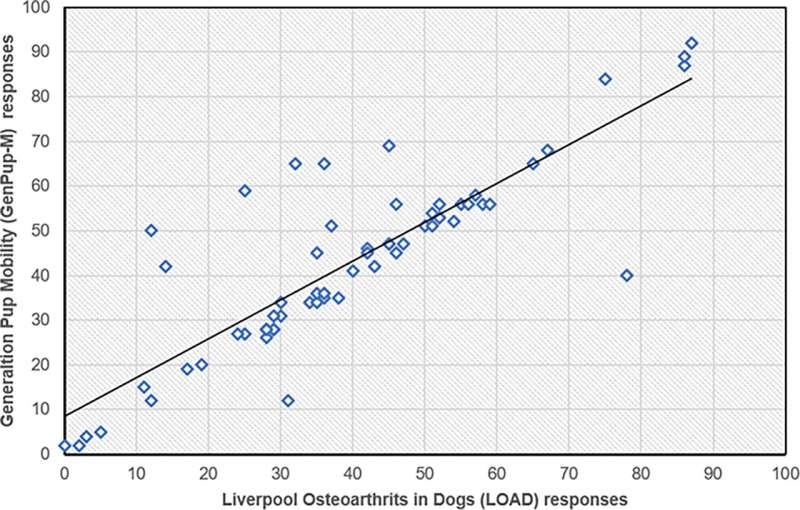This article has been reviewed according to Science X's editorial process and policies. Editors have highlighted the following attributes while ensuring the content's credibility:
fact-checked
peer-reviewed publication
trusted source
proofread
A unique approach to detecting and predicting dog mobility issues

Veterinary researchers at the University of Liverpool, along with partners at Dogs Trust, have developed a unique approach to detecting and predicting dog mobility issues.
Experts at the University, and at Dogs Trust have devised the "GenPup-M" questionnaire. Through a series of questions that are answered by a dog's owner, it can be established whether a dog is experiencing mobility issues. The questionnaire asks owners to reflect on their dog's well-being and physical abilities and has the ability to detect mild mobility issues that warrant a discussion between the owner and the dog, to explore options to improve the dog's welfare.
It has been estimated that up to 50% of U.K. dogs are diagnosed with some degree of reduced mobility between the ages of 8 to 13 years. However, current mobility questionnaires only allow monitoring of the dog's mobility once a problem is more severe.
An academic paper about the questionnaire, "GenPup-M: a novel validated owner-reported clinical metrology instrument for detecting early mobility changes in dogs," has been recently published in PLOS ONE.
It confirms the validity of the set of questions through a study of 62 dogs (31 with mobility impairments and 31 without mobility impairments). Researchers compared GenPup-M responses with the results of further specialist tests including state of the art gait analysis to confirm that the results of the questionnaire could accurately identify mobility issues.

Natasha Clark, Veterinary Surgeon and Researcher, Department of Musculoskeletal & Aging Science at the University of Liverpool said, "Impaired mobility can affect a dog's ability to engage in daily activities and interactions, move or exercise freely. If an animal is unwilling to or cannot play, exercise or express normal behavior this can impact its quality of life.
"Over time and if done at every check-up, the GenPup-M questionnaire can detect subtle changes in a dog's mobility, without the need for time consuming and expensive gait analysis. The tool can also aid vets in diagnosing and hopefully mitigating the development of mobility issues.
"Our research does not stop here and we will continue to research and develop GenPup-M to refine it as an even more effective tool for vets and dog caregivers."
Dr. Jane Murray, Deputy Head of Research, Welfare Projects & Grants at Dogs Trust said, "We are delighted to work collaboratively with the University of Liverpool on this study which serves to improve the well-being of dogs, as no dog is immune to mobility issues. Generation Pup is a ground-breaking study of the health, welfare and behavior of our dogs and we hope this research helps more owners detect early signs of mobility issues, leading to veterinary and management interventions that can improve the welfare of affected dogs."
More information: Natasha L. Clark et al, GenPup-M: A novel validated owner-reported clinical metrology instrument for detecting early mobility changes in dogs, PLOS ONE (2023). DOI: 10.1371/journal.pone.0291035
Journal information: PLoS ONE
Provided by University of Liverpool




















